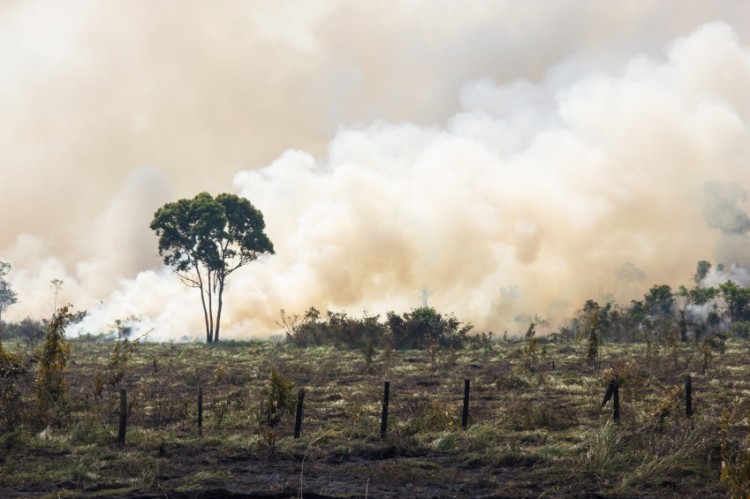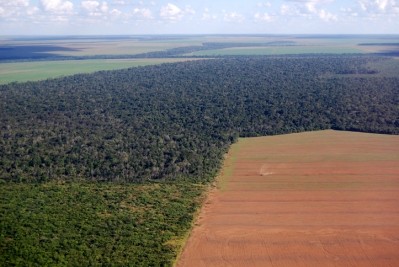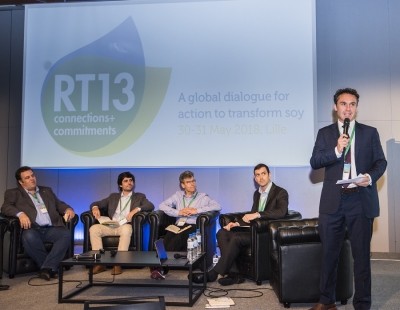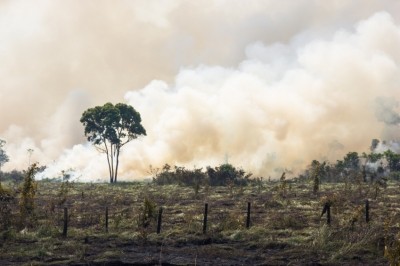Cargill and NGOs hail ratification
Brazilian soy moratorium renewed ‘indefinitely’

It was ratified on Monday by Brazil’s environment ministry and coordinators of the Brazilian Soy Working Group (GTS), which includes the national associations of vegetable oils producers (ABIOVE) and grain exporters (ANEC), soy traders, and NGOs.
The renewal comes somewhat as a surprise as the agreement was set to expire this month.
The moratorium had been given a stay of execution until May 2016, by which time the ministry had anticipated that enough soy farmers would be meeting their obligations under the two instruments included in the new environmental governance laws, the Forest Code — the Rural Environmental Registry (CAR) and the Environmental Compliance Program (PRA) — to justify ending the agreement.
Deforestation reduction
A study evaluating the soy moratorium, published in the journal Science in January 2015, showed it has made a major contribution in ensuring a reduction in deforestation in Brazil since its introduction.
Prior to the moratorium, soy accounted for roughly a fifth of recent deforestation, while today its share is less than 1%.
The authors of that study, led by Holly Gibbs of the University of Wisconsin in the US, argue that ending the moratorium prematurely would risk a return to deforestation, as full compliance and enforcement of the CAR and Forest Code regulations is likely to be years away.
‘An effective mechanism’
We gauge reaction to the continuation of the agreement:
Angela Booth, sustainability committee chairperson, European feed manufacturers’ federation, FEFAC, told us the renewal of the Brazilian soy moratorium is valuable in the short term. “Compliance [with the Forest Code] is progressing very well in many states but there are pockets that need greater focus,” she said.
Chris Schraeder, spokesperson on sustainability matters for Cargill, said as a member of the Soy Working Group (GTS), the company supports the soy moratorium and applauds the decision of ABIOVE to renew it. “The moratorium has been an effective mechanism for drastically reducing deforestation in the Brazilian Amazon biome. Since 2006, this landmark collaboration between the private sector, civil society and government has demonstrated how collective action can help preserve and protect valuable forests,” he added.
Tamara Mohr of Both ENDS, which hosts the secretariat of the Dutch Soy Coalition, said: “The soy moratorium demands go beyond the Forest Code, so this is very good news. The Forest Code still allows 20% deforestation in the Amazon, the moratorium doesn’t. So the Forest Code will not be affected by this decision and will be implemented as well, both in and outside of the Amazon Biome. Our only wish, along with all the zero (net) deforestation commitments, is that the moratorium will be expanded to other biomes such as the Cerrado.”
Meanwhile, Frederico Machado, WWF-Brazil representative on the moratorium, reckons it is one of the best benchmark agreements globally as: “It not only considers its results on the ground over time, but, also, because it goes beyond halting deforestation to protecting all kinds of ecosystems in the Amazon biome from wetlands to savannahs to grasslands.”
Though Edegar de Oliveira Rosa, WWF-Brazil head of agriculture and sustainability, concurs with Mohr: “One of the challenges posed to GTS, which manages the moratorium, is to develop a mechanism similar to the soy moratorium in the Amazon for the Cerrado, the biome with less legal protection, which has suffered high conversion rates in the last decade.”
Forest Code implementation
The WWF published guidelines in February this year it said would boost the Forest Code and support the final stretch of implementation of CAR, the code’s main legal instrument.
The organization said the publication was aimed at helping investors, businesses, rural agriculture and forestry producers and government managers, within and outside of Brazil, to make decisions that are good for both the rural economy and environmental conservation.
Compliance with CAR is not yet complete partly because landowners in some regions still have concerns about such registration, reported the WWF.
“In this context, challenges, incentives, and even tangible market support may become essential,” noted the organization.
At the end of 2015, the Brazilian government reported that 60% of all rural areas were already registered in the CAR. “However, to include the remaining 40% is likely to be more challenging as it consists of the more resistant producers,” concluded the WWF in the report.
The publication also noted federal and state officials missed the two-year deadline to implement their Environmental Compliance Program (PRA):
“Three years have passed and the majority of the states still have not implemented their programs.
“Rural sector leaders are already stating their desire to revise the legislation, due to their disagreement with many aspects of the law. The same is true for civil society organizations. Both movements may cause legal insecurity and divert attention from what really matters, which is the sound and effective implementation of the Forest Code,” said the WWF.










